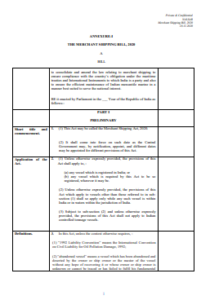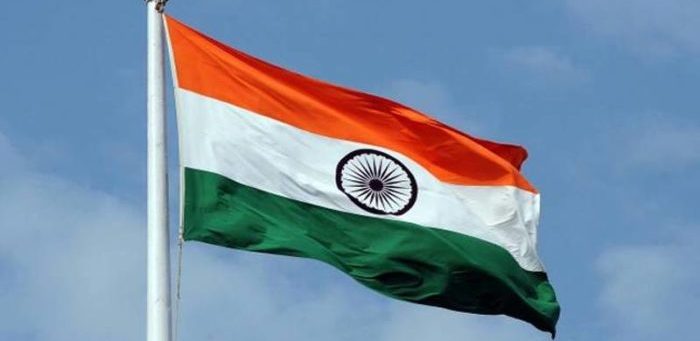Indian Ministry of Ports, Shipping, and Waterways plans to repeal and replace the “Merchant Shipping Act, 1958”, as it has recently issued a draft of the Merchant Shipping Bill, 2020 for public consultation.
In fact, the bill will replace the Merchant Shipping Act, 1958 (Act No. 44 of 1958) and the Coasting Vessels Act, 1838 (Act No. 19 of 1838).
As explained, the Merchant Shipping Bill, 2020 has been drafted, with the primary aim of promoting the growth of the Indian shipping industry by incorporating the best practices adopted by other advanced countries like the U.S., Japan, U.K., Singapore, and Australia.
As Government of India stated, the main goals of the Merchant Shipping Bill, 2020 are the following:
- Promote ease of doing business- The Bill does away with the requirement of general trading license for Indian vessels.
- Embrace digital technology- It enables electronic means of registration, and grants statutory recognition to electronic agreements, records, and logbooks, in addition to electronic licenses, certificates, and payments.
- Increase tonnage and Vessel as a Tradable Asset-The Bill seeks to increase India’s tonnage by widening the eligibility criteria for ownership of vessels and providing for the registration of bareboat charter cum demise, thereby increasing opportunities for international trade.
- Introduce for the first-time a statutory framework for regulating maritime emergency response against maritime incidents. The provisions seek to provide for the time-effective implementation of response mechanisms in order to ensure that the same is prevented from becoming a wreck or other catastrophic event.
- The welfare of Indian seafarers on abandoned vessels and safety of abandoned vessels: Provisions for repatriation of abandoned seafarers have been enhanced, in line with the MLC regulations.
- Strengthen adjudication and predictability of claims: In order to strengthen the investigation and adjudication of claims arising out of the collision of vessels, assessors may be tasked by the High Courts to present their findings on the degrees of the fault of each vessel.
- Take action against vessels that are unsafe, and pose a threat to the safety of life at sea and environment, while include a procedure for appeal from detention orders.
- Encourage active enforcement of pollution prevention standards, as the Central Government has been granted the power to mandate compulsory insurance or other financial security, for pollution damage.
In light of the above-mentioned facts, the Bill aims to offer increased opportunities for investment and provide greater impetus to a self-reliant domestic investment climate in the maritime industry.
Among others, the provisions regulating the maritime education, training, certification and the recruitment and placement of seafarers, and ease of registration of ships under the Indian flag will give an impetus to the quality and quantity of Indian seafarers.
Explore more herebelow:































































